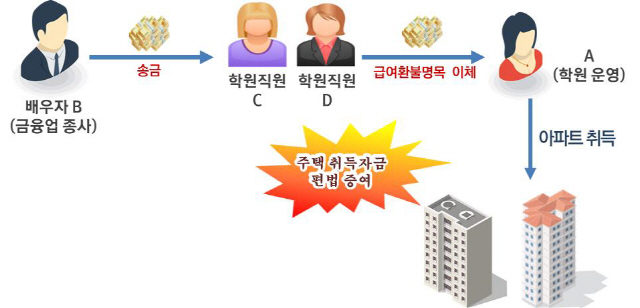Initiated a tax investigation for 358 people at the National Tax Service
Amid the overheating of the real estate market last year, it was found that various tricks were mobilized to avoid taxes in the housing transaction process. In particular, there have been many cases of false monetary contracts between family and relatives to avoid gift tax. However, some in the market point out that the government is rapidly tightening the lending market, making it difficult to raise funds, so that it is expediently pushing consumers. The transactions suspected of tax evasion captured by the IRS were organized by case.
 viewer
viewer
#One. International student A returned to Korea after studying abroad last year and acquired an expensive apartment worth over 1 billion won even though he had no declared income. In the process of calling for the acquisition funds, A reported to the National Tax Service that while studying abroad, he made a profit by borrowing money from an acquaintance B. However, according to the actual investigation, the money A borrowed from B was actually money that A’s father had remitted to B in advance. In addition, Internet sales were made as if A’s father had sent money to acquaintances in advance and bought the goods from A. In order to avoid this, a false money transaction was made to avoid the gift tax if the father handed the money right away. In the end, A was levied a gift tax of hundreds of millions of won by the National Tax Service.
#2. C, who runs an academy, recently acquired many apartments, but the income reported to the National Tax Service was low enough to make it difficult to buy an apartment. As a result of an investigation by the Internal Revenue Service for lack of funding sources, it was confirmed that C’s spouse D, after sending funds in advance to the employees operated by C, returned them to C in the name of “returning overpaid” to acquire an apartment. C was also charged a gift tax from the National Tax Service.
 viewer
viewer
#3. Foreign nationality minor E residing in Korea bought several high-priced apartments even though he had no declared income. As a result of an investigation by the Internal Revenue Service on the alleged lack of funding sources, it was found that E obtained an apartment by receiving funds from his parents living abroad, and bought the apartment again with the security deposit for renting it. In the process, it was confirmed that E’s parents tried to avoid gift tax by transferring funds through illegal foreign exchange transactions (Hanchigi). The IRS sued E’s parents to the authorities.
 viewer
viewer
#4. F, running a private stock consulting company, missed sales by receiving a large amount of cash as a bait for providing high-quality information to its members. In addition, while studying abroad, who did not work at this company, they falsely paid labor expenses to minor children and spouses, thereby eliminating corporate income. F is accused of avoiding gift tax by acquiring a luxury apartment in Seoul in the name of his spouse and children. The IRS plans to focus on investigating F’s fund flow.
A total of 358 tax evasion suspects suspected that the IRS had evaded taxes in this way. By type, in the process of acquiring high-priced houses and shopping malls, the number of suspected evasions was the highest at 209, who paid less taxes through down-contracts or expedient gifts. There were also 51 suspects who were believed to have acquired funds for housing purchases even though they did not have a clear reported income.
In addition, there were 32 owners who acquired a house by withdrawing money from the house and a rental company who illegally remodeled the house (split the room) to lease and omit cash sales. 66 people were suspected of buying a house with this money.
An official from the National Tax Service said, “I made up a financing plan by borrowing the acquired funds from relatives, but in fact, I confirmed a number of cases that were confirmed as donations or the fact that real estate was acquired with the leaked funds due to omission of reporting business income.” In this case, we will directly verify the funding ability of our relatives and track the flow of funds to the end.” In addition, the policy of the National Tax Service is to check whether the borrowings of relatives are repaid on their own even if they are verified as appropriate.
In the real estate industry, it is analyzed that the purchasers of high-priced apartments or multi-homes with more than 2 billion won should be viewed as being actually thoroughly investigated.
/ Reporter Seo Il-beom [email protected]
< 저작권자 ⓒ 서울경제, 무단 전재 및 재배포 금지 >
